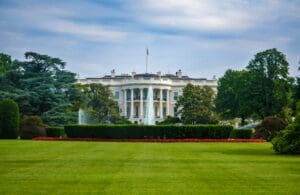At least 11 U.S. cities are piloting UBI programs to give some of their residents direct cash payments, no strings attached.
By: Sarah Holder
Giving people direct, recurring cash payments, no questions asked, is a simple idea — and an old one. Different formulations of a guaranteed income have been promoted by civil rights leaders, conservative thinkers, labor experts, Silicon Valley types, U.S. presidential candidates and even the Pope. Now, it’s U.S. cities that are putting the concept in action.
Fueled by a growing group of city leaders, philanthropists and nonprofit organizations, 2021 will see an explosion of guaranteed income pilot programs in U.S. cities.
At least 11 direct-cash experiments will be in effect this year, from Pittsburgh to Compton. Another 20 mayors have said they may launch such pilots in the future, with several cities taking initial legislative steps to implement them.
“We are at a moment right now where city leaders, residents policymakers, and activists are all looking for big ideas to begin to chip away at some glaring structural problems in our systems and institutions,” said Brooks Rainwater, senior executive and director of the National League of Cities’ Center for City Solutions.
“This new wave of pilots is different because of the groundswell of support for guaranteed income we are seeing in cities across America.”
These programs are often called UBI, for Universal Basic Income, but with each distributing monthly payments to just some households, they aren’t yet truly universal, and there’s disagreement over whether they should be. Instead, they’re “unconditional,” a contrast to many existing government programs that tie benefits to work requirements, or set parameters on how recipients can use the money. Still, the idea isn’t to replace the existing safety net, but build upon it.
The current wave of city programs was catalyzed in the U.S. with a two-year pilot in Stockton, California, that began in February 2019. Originally slated to sunset in the summer of 2020, philanthropic support allowed the program to continue for six more months during the Covid-19 pandemic. After gaining a national profile for helping to initiate the program, former Stockton Mayor Michael Tubbs was voted out of office this November — but not before launching a coalition of local leaders called Mayors for a Guaranteed Income, which he will continue to lead in 2021.
“We need a social safety net that goes beyond conditional benefits tied to employment, works for everyone and begins to address the call for racial and economic justice through a guaranteed income,” Tubbs said in a statement.
In the short term, the goal of the nearly 30 mayors in the coalition is to run guaranteed income experiments. The ultimate aim of the mayors coalition is to pass a federal guaranteed income program. Every city that joins is eligible for $500,000 in pilot funding; they’ve partnered with the University of Pennsylvania School of Social Policy & Practice to produce research reports, and will share best practices throughout. The effort has gained high-profile philanthropic supporters, including Twitter CEO Jack Dorsey, who donated $3 million to the group in July and another $15 million in December.
The results will be supplemented by other experiments in global cities, past and present. The largest such program is in Maricá, Brazil, where tens of thousands of residents below the poverty line are currently receiving monthly payments.
Although the U.S. programs announced thus far can serve only hundreds of residents per city, advocates say their immediacy, simplicity and emphasis on radical trust are an antidote to the biases and bureaucracies that hinder other welfare programs.
“Cash is the currency of urgency,” said Mayor Shawyn Patterson-Howard of Mount Vernon, New York, at a conference convened by the National League of Cities in November. “People need money right now.”
Recent stimulus payments from the federal government have helped some Americans see the benefit of direct disbursements and may have chipped away at public resistance: A poll commissioned by the Economic Security Project found that 76% of respondents supported “regular payments that continue until the economic crisis is over,” and a Gallup poll found widespread support for additional stimulus. Proponents hope these local efforts will normalize and popularize guaranteed income in the U.S. for potential future federal action.
As we enter a second year of a pandemic that’s left more than 10 million Americans unemployed and 26 million hungry, most of these programs are geared at low-income residents. But they also expand ideas about what a guaranteed income might look like, with some tailored to more specific groups such as families with children or Black mothers, and more specific goals such as maternal health and racial justice.
Tackling poverty
In December, Compton in Los Angeles County launched what could become the largest guaranteed income pilot in the U.S.
The majority-Latino city with a poverty rate double the national average is run by Mayor Aja Brown, who was elected in 2012 as the youngest mayor in the city’s history — a distinction she shares with former Stockton Mayor Tubbs. Called the Compton Pledge, Brown’s guaranteed income project has already started disbursing payments to 30 low-income families. Rolling enrollment will continue through Marchuntil nearly 800 families are participating. Households will get up to $1,000 a month for two years, with payments calculated based on the family’s size.
Recipients are randomly selected from a pool of the city’s low-income residents, and the project emphasizes that formerly incarcerated and undocumented people are eligible, even as they slip through the cracks of traditional welfare programs.
The coalition of partners supporting the project is made up of “strong women of color who are not seeing this particular policy as an emergency measure in the wake of Covid-19, but also as the beginning of how we can reimagine community investment, where government invests its money, and who we consider essential,” said Nika Soon-Shiong, the co-director of the Compton Pledge and the executive director of the Fund for Guaranteed Income. Along with studying how people access the money and then how they spend it, the program has designed a basic income web portal for communications and payments, which other cities could use for future projects.
Compton’s program, like Stockton’s, is geared broadly at residents with lower incomes. Another program in Hudson, New York, will follow a similar model, with $500 monthly payments to 25 low-income residents for an even longer duration: five years.
But many of the other new programs are geared at even more specific populations.
Pursing racial justice
“If we offer our families a little bit of breathing room, will they be able to dream about something a little bigger?”
That’s the question posed by the Magnolia Mothers Trust, a program launched in Jackson, Mississippi, to provide Black low-income mothers with $1,000 a month. After a year-long pilot starting in December 2018 with 20 women, some takeaways emerged: Three-quarters of the participants were able to give their families three meals a day, and collectively, they paid off $10,000 in debt. The women said they worried less, and were more hopeful about their futures. In 2020, the program started its second round, expanding to include at least 110 different mothers in Jackson.
Jackson is one of a number of cities narrowing its guaranteed income program to focus on racial justice, using the funds to address structural inequities. San Francisco’s mayor, London Breed, partnered with local birth equity initiative Expecting Justice to launch a targeted basic income program geared at the earliest phases of motherhood: “The Abundant Birth Project” will support 150 Black and Pacific Islanders with $1,000 a month throughout their pregnancies and six months after, in an effort to reduce the disproportionate toll of maternal and infant mortality among those communities of color. Unlike other programs for pregnant women that focus on providing particular services like transportation or medical care, this one empowers women to spend it on whatever comes up each month. Eventually, the hope is to supplement San Francisco mothers’ income for two years postpartum.
“Structural racism, which has left Black and Pacific Islander communities particularly exposed to Covid-19, also threatens the lives of Black and PI mothers and babies,” said Zea Malawa, who works on maternal and adolescent health at San Francisco’s Department of Public Health, in a statement. “Providing direct, unconditional cash aid is a restorative step that not only demonstrates trust in women to make the right choices for themselves and their families, but could also decrease the underlying stress of financial insecurity that may be contributing to the high rates of premature birth in these communities.”
In Columbia, South Carolina, a pilot will focus instead on Black fathers to “address the fracturing of families.” The program, called the Columbia Life Improvement Monetary Boost, or CLIMB, will provide $500 a month for two years to 100 men chosen at random in partnership with the Midlands Fatherhood Coalition, an organization that works with South Carolina dads.
Pittsburgh’s program has a more complex design, tailored to research on its own city: In 2019, a race and gender equity study revealed that Pittsburgh has some of the highest rates of poverty, unemployment and adverse health outcomes for Black women among U.S. cities. Based on those findings, and the threat of the Covid-19 pandemic, the mayor’s Gender Equity Commission made several recommendations, among them building out a universal basic income pilot program. Mayor Bill Peduto took heed, first announcing that he was joining the Mayors for Guaranteed Income group, and then unveiling a pilot program, the Assured Cash Experiment of Pittsburgh, slated to begin in 2021.
Some 200 families that earn less than 50% of the city’s area median income will receive a monthly $500 stipend over two years. Half of the spots will be reserved for Black women-led households. So far the program is propped up by philanthropic and corporate dollars, but Peduto’s office is reviewing the law to see if the city can match funds for it as well, in hopes of scaling it up.
“From the beginning we thought that the city should have skin in the game, as a show of good faith to show that we’re a part of this program and believe in it.
“It needs to be piloted to be able to show people what the benefits can be, and then we have to be able to utilize the data in order to create benchmarks,” said Peduto.
“There are a multitude of indicators that we can look at but you’re never going to be able to prove it or see it if you can’t test it.”
Addressing family needs
Several other programs are focusing on families with kids. Mayor Melvin Carter launched the “People’s Prosperity Pilot” in St. Paul, Minnesota, to reach 150 families chosen randomly from those who signed up for another city initiative, which gives every newborn a college savings account seeded with $50. These families will get $500 a month for 18 months.
Carter says he’s seen the limitations of existing aid for families firsthand: As a child, his daughter had allergies to milk and peanuts, but because of the strict rules around how Women, Infants and Children benefits can be spent, his family wasn’t able to use the funds to purchase unique essentials like soy milk or almond butter. Already, more than 100 participants have signed up, Carter said.
Richmond, Virginia’s “Richmond Resilience Initiative,” launched by Mayor Levar Stoney this year, had an initial goal of reaching 18 low-income working families with kids who don’t qualify for other forms of government benefits; after Dorsey’s donation, the program has been expanded to reach 55. Oakland hasn’t yet released details about its planned cash transfer program, but Mayor Libby Schaaf has said it, too, will target families with children upon its launch next year. And as Providence, Rhode Island, Mayor Jorge Elorza plans his city’s pilot, he says he’s been reflecting on the way money struggles “tear families apart.”
Paying for it
Particularly at a time of dire financial challenges for cities, most programs are benefitting from at least some private funding: Stockton’s pilot was entirely philanthropy-funded, though that didn’t insulate it from critiques by skeptical constituents, Tubbs said. The Compton Pledge is a partnership between the city, the Fund for Guaranteed Income and the Jain Family Institute, and is funded entirely from private donations.
Other mayors have bolstered philanthropic investment with public dollars. Richmond partnered with the local Robins Foundation. Patterson-Howard says that since Mount Vernon’s project would double as a housing stability program, she’s looking to use federal Department of Housing and Urban Development funds and money from the CARES Act Covid relief legislation passed by Congress. While the pilot is still in design mode, she hopes to target 75 to 100 families, and has already begun talks with the county, faith-based organizations, Black and brown sororities and fraternities and local businesses. For corporations that pledged to support the Black community in 2020, Patterson-Howard says this is a “sexy” opportunity to put those words into action.
Carter started St. Paul’s program with CARES Act dollars, combined with private fundraising. “One individual called me and asked how he could give $90,000 anonymously and when the check came, it was for twice that amount,” said Carter. Business leaders see the value in this kind of project, he said: “They need a stable workforce, who can feed their children and participate in their economy, as well.”
Not everyone is so gung ho. Critics of basic income come from the right and the left, the wealthy and the poor. Some argue that the money will be spent on drugs — in Stockton, on average, most of the $500 researchers tracked was spent on food and essentials each month — or that it will deter people from looking for work, an outcome deflated by a Finland experiment but hard to definitively disprove. Others are turned off by the original idea of universal basic income that rich people could be included, or frustrated that they were not one of the randomly selected recipients in more targeted experiments.
The narrower scope of the new wave of pilots also has its own drawbacks: By tailoring eligibility to families with children or other specific groups of people, the pilots replicate some of the constraints of the national welfare system.
Means-tested benefits already miss out on a lot of people, either intentionally or accidentally. On the flip side, some people who do get federal benefits like disability or housing may fear that signing up for guaranteed income would make them ineligible.
Dispelling these doubts and building a case for why cash works has been a persistent focus for the mayors who are leading these projects. To many city leaders, the most enduring effect of these experiments may be to erase notions of “deservedness” from the welfare conversation entirely.
“We don’t tell banks how to use their money when we bail them out, we don’t tell companies how to use their money when we bail them out,” said Patterson-Howard. “Essential workers deserve to spend their money on their own terms, too,” she said.
“This space is full of racist tropes about what ‘those people’ will do if you give them money,” addedCarter. “None of them are based in fact, statistics or real data. We have the opportunity to disprove some of those.”
— With assistance by Brentin Mock
________________________________________________________
To see original article please visit: https://www.bloomberg.com/news/articles/2021-01-04/guaranteed-income-gains-popularity-after-covid-19




















